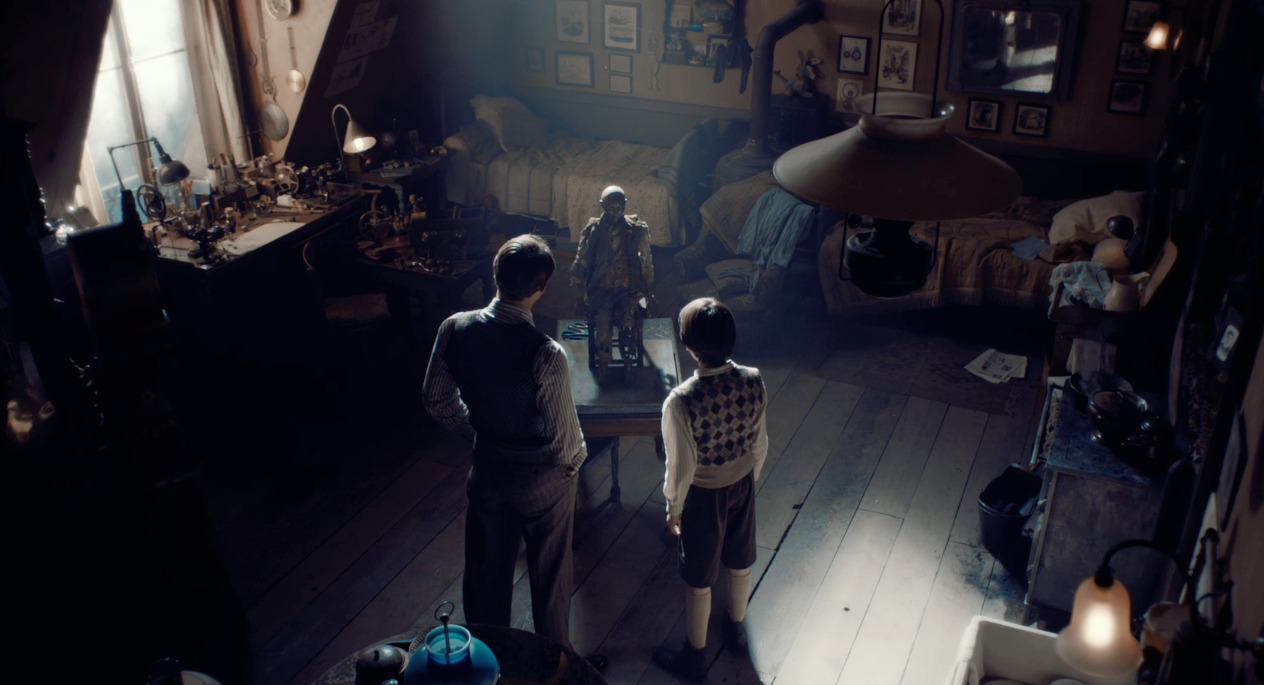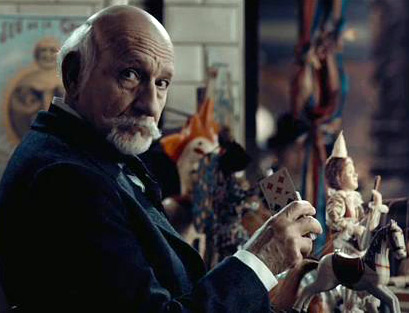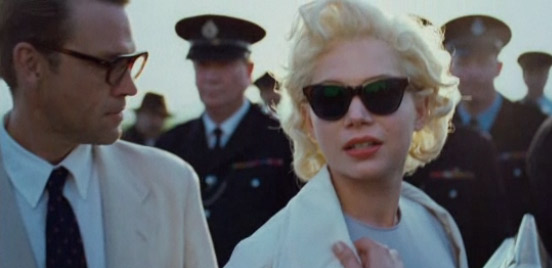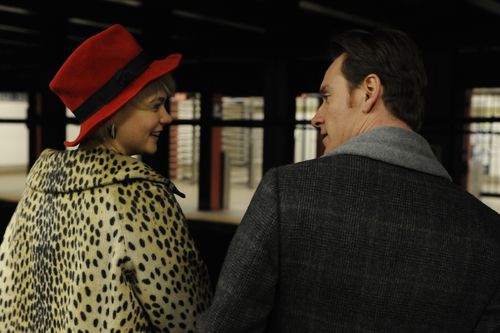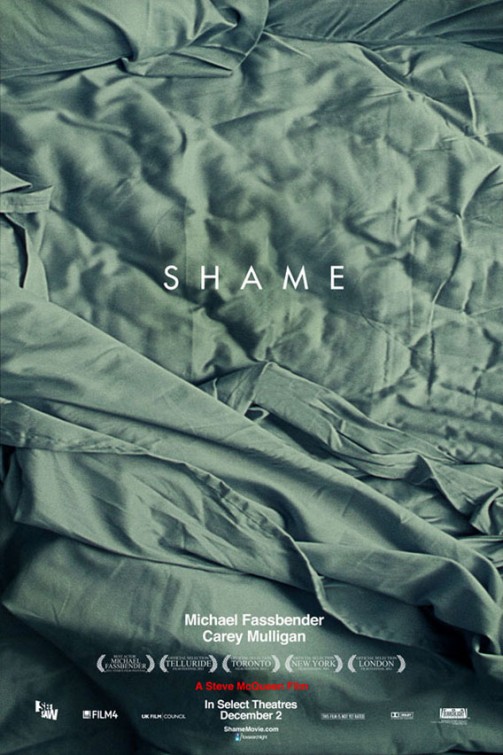Scenes: I Stood Where Carey Mulligan Sang
 Tuesday, October 11, 2011 at 4:12PM
Tuesday, October 11, 2011 at 4:12PM This weekend I had the pleasure of attending a private party for Fox Searchlight's Shame after its New York Film Festival premiere held at the Top of the Standard. That's the bar atop the glassy luxury hotel that hovers in the sky over the immensely popular High Line (an elevated walkway over the meatpacking district). You read that the Top of the Standard (also known as the Boom Boom Room) is impossible to get into if you're not among the über famous or wealthy. I just walked up and said "Michael Fassbender's Party" and the doors parted. Amazing what a name can do.

Not mine, his! Don't misunderstand. I always feel as if there's been some mistake when I enter these moneyed settings as I'm just a poor boy from Detroit who loves the movies too much. Not that I don't welcome such beautiful mistakes. I know virtually no one so am happy to run into a friend from Movie|Line while I'm there and we catch up a bit.
Mostly I'm there to soak up the buzzy atmosphere since the film, despite the very typical backlash which followed the early Venice "Masterpiece!" shouting, has been well received. That's particularly true of Michael Fassbender and Carey Mulligan's performances, which snap electrically back and forth between frighteningly numb fleshiness and raw exposed nerves. I spot Fassy almost immediately several people away talking to executive types. He's all slim and handsome in a gray (?) suit but he looks substantially more human in person, almost civilian like, were it not for that sleek beanpole refinement. Another partygoer echoes my thoughts "Before you got here he was just standing outside smoking... like he was anybody else!"
At one point John Cameron Mitchell is standing right behind me and though he's surrounded by friends and I have no idea what they're talking about I immediately presume (by which I mean pretend) that they're all discussing Shortbus (2006) since it's the last sexually explicit serious-minded English language movie I can think of before Shame. Elsewhere I see faces I can't quite place though I recognize them (character actors? industry players?) and one that I do, Brady Corbet. He's had such a steady career playing suspicious, damaged or dangerous types for everyone from von Trier to Araki through Michael Haneke and now Sean Durkin (Martha Marcy May Marlene -reviewed) that at first I am wary of his total friendliness. Nevertheless I have to take advantage and we chat for awhile. How soon did he know Martha would be special? He indicates immediately but when pressed for something more definitive about life on a film set -- how soon do you get a sense for what the finished film will be? -- he hesitates before settling on "two weeks."
Nicole Beharie, on the other hand, who plays Fassy's would be girlfriend (and co-worker) in Shame didn't know what to expect at all. She had just seen her film for the first time that night. Turns out that she and Fassbender improvised a lot and since all three of her major scenes are actually single continuous shots (yay!), she had no idea which takes were chosen. I make a mental note to thank Steve McQueen for this as it is such an strangely rare treat to be able to watch two fine actors acting together rather than in their own disjointed closeups.
Carey Mulligan is absent. "She's in Australia filming Gatsby" I'm told by the vivacious publicist who makes my night when she points out that we are mere feet away from the spot where Carey Mulligan sang in the movie.
 If u can make it there, u'll make it anywhere. come on come thru New York, New York ♫
If u can make it there, u'll make it anywhere. come on come thru New York, New York ♫
If you haven't been following reviews, there's a key scene early in the movie where the Oscar-buzzing actress, playing Sissy the cabaret singer, does a rendition of "New York New York" that is both hauntingly real (her voice isn't perfect but emotive) and vaguely unreal (it's in the molasses phrasing and intense close-ups that aren't preferenced elsewhere in the film). The whole sequence might justifiably be read as a dream sequence, a psychic conversation, between sister Sissy and brother Brandon. The sequence has only two edits and thus three acts if you will, as it stares at Sissy then Brandon then Sissy again for wrap up.
Looking around I realize that The Standard is practically Shame Central... (though it'd surely be odd to advertise as such!) Two of its sex scenes were also quite obviously filmed there. It's the glass windows and the wrap around view that are dead giveaways.
Before leaving I chat briefly with Steve McQueen and narrowly resist the urge to bow down after years of worshipping his debut film Hunger though I can't help but praise him for his resistance to the boring unimaginative camera work that plagues even "master" directors when two characters converse. Rather than gushing any further, I thank him for not taking a million years off between film #1 and film #2 (a typically unfortunate habit of newbie directors). He's already working on film #3 he tells me called Twelve Years a Slave starring Chiwetel Ejiofor -- though what little he says about it he asks me not to print. Shame (no pun intended). His current pace is troubling him, he adds, because he also has his art career and his wife and kids who need more of his time.
I suppose we can allow him a break after film number three. As long as he keeps working...



